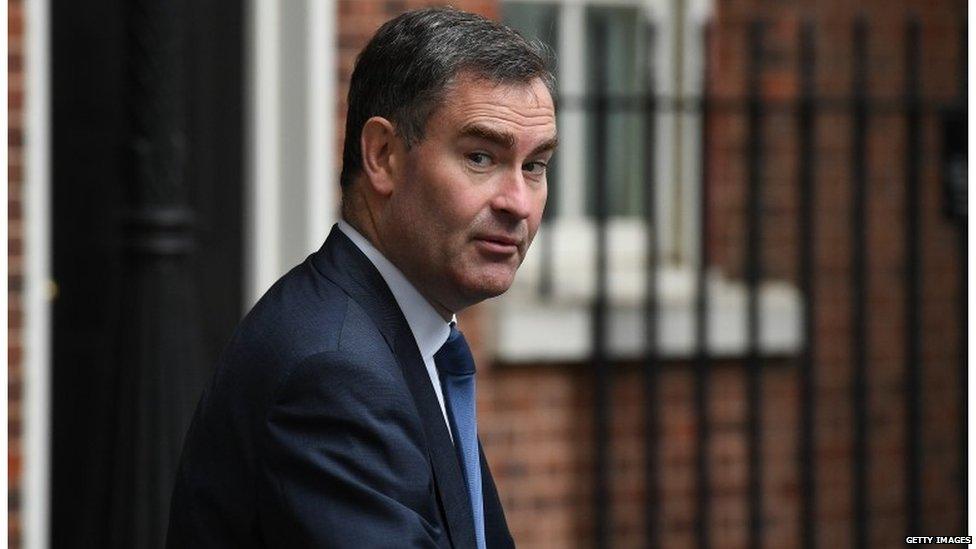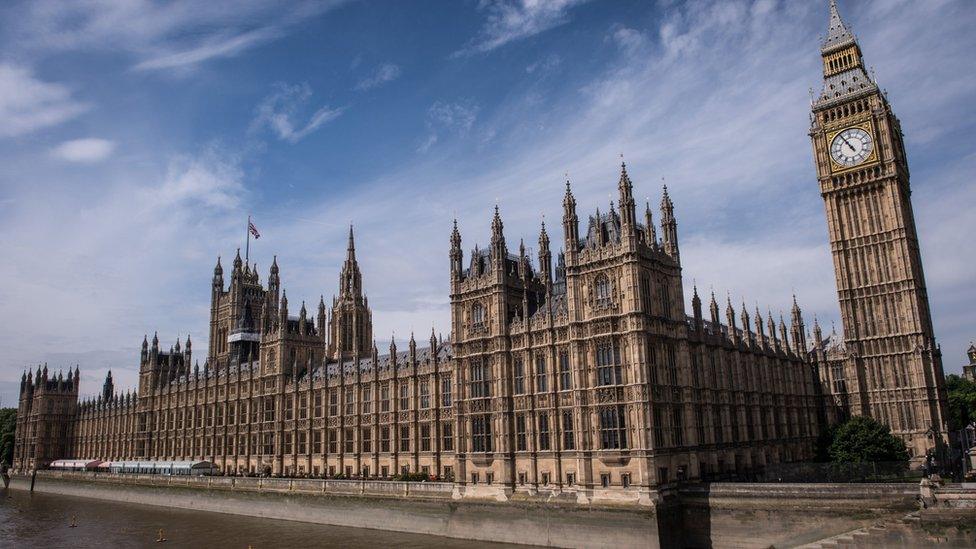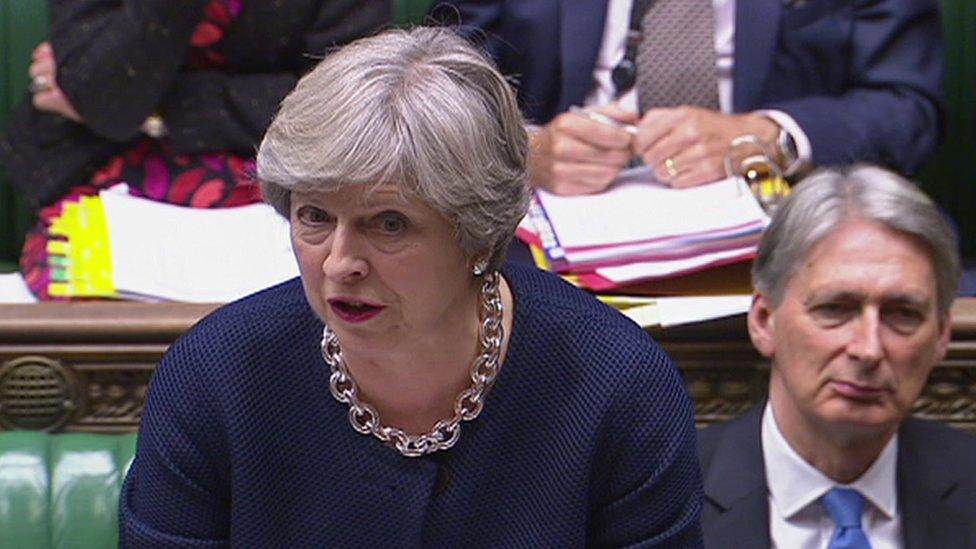Universal credit: Labour attacks minister's absence from debate
- Published
- comments
Debbie Abraham has had no 'satisfactory response'
Labour has accused work and pensions secretary David Gauke of snubbing Parliament after he failed to attend an emergency debate on universal credit.
Debbie Abrahams, the party's work and pensions spokeswoman, said his absence was "profoundly disrespectful".
She said Labour would continue to fight for changes to the welfare scheme.
Employment minister Damian Hinds said the roll-out would proceed with care but several Conservative MPs said the six-week wait for cash must be reduced.
The government is under pressure to pause the current expansion of universal credit, which combines six benefits into one, amid reports some families are facing real hardship.
Ms Abrahams, who applied for the emergency debate in an effort to put pressure on the government, said she was "disappointed" ministers appeared not to be listening to the concerns of constituents despite losing a symbolic vote on the issue last week.
She said: "The House's view is clear. The government must act. If they fail to do so, we will continue holding them to account.
"We will keep fighting on this vital issue and stand up for the seven million people who will be affected until change is realised and we have built a social security system which is fit for purpose."
Conservative MPs were ordered to abstain in the debate on a Labour motion last Wednesday and although the result was not binding on the government, ministers were accused of effectively ignoring the outcome.
Ms Abrahams said it had been a "serious rebuke" to ministers, which deserved a clear response.
Tuesday's debate ended with a vote on a motion that the House "has considered" the matter raised by Ms Abrahams, although once again it will have no direct impact on government policy.

The work and pensions secretary was not present for the start of the debate
Mr Hinds told MPs that last week's vote was "legitimate" and the government had "taken much" from the earlier debate as it continued to "evolve and improve" the way universal credit operated.
Far from a "big bang approach", he said periodic pauses had been built into the roll-out - the next one coming in January - which meant it was taking effect "gradually in a considered way" over a nine-year period.
"Universal Credit prepares you for work, it helps you into work, and it helps you get on in work," he said.
But Conservative MP Peter Aldous said claimants had to receive their initial payments "much quicker" and alternative arrangements put in place to stop people falling into rent arrears.
And his colleague Chris Green said the six-week initial wait was "not in the spirit" of universal credit. "It ought to be that four-week period, right from the off," he said.
Labour's Frank Field, who chairs the Commons work and pensions select committee, said its roll-out was likely to significantly increase the number of people having to resort to food banks over Christmas to avoid going hungry.
And the SNP's Neil Gray said the government's inability to take difficult decisions on welfare showed it was "paralysed with fear and indecision" and bereft of "strategic direction".
Downing Street is reported to be looking at reducing the waiting time to a month - but the Department for Work and Pensions insists no changes will be made.
The department says anyone struggling to make ends meet and pay bills can receive bridging payments within five days with same-day financial support for those in the most need.
- Published19 October 2017

- Published13 May 2024

- Published18 October 2017
